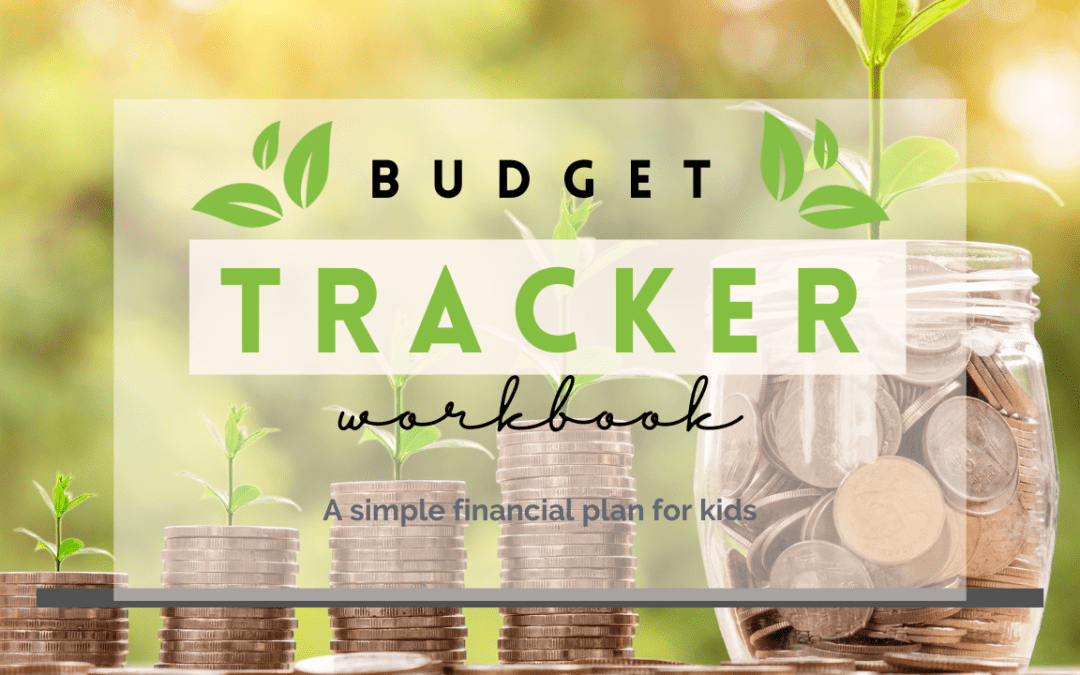Teaching kids about money management is a valuable life lesson that lays the foundation for a secure financial future. As children navigate the exciting journey of growing up, it’s essential to equip them with essential skills, such as budgeting, saving, and making thoughtful spending choices. We’re thrilled to introduce our latest tool to support this endeavour: the Budget Tracker Workbook for Kids.
In a world filled with tempting advertisements and ever-changing trends, empowering kids with financial literacy from a young age is more crucial than ever. Our Budget Tracker Workbook is designed to transform learning about money into an engaging and interactive adventure, making it both educational and enjoyable for children of all ages.
In this blog, we’ll take you on a tour of our Budget Tracker Workbook, highlighting its features, benefits, and how it can become an invaluable companion on your child’s financial learning journey. Whether you’re a parent, guardian, or educator, join us as we explore the exciting possibilities that this workbook brings to the table and set your child on the path to becoming a confident and savvy money manager.
Let’s embark on this money adventure together and discover how our Budget Tracker Workbook can make a positive impact on your child’s financial education.
Using their own life as an example
You can give your child a ball park income figure that is close to your own and your own average outgoing costs and see how they would budget for your family. Another option, is having them research the average income of their desired profession and going off average outgoing costs for your area. These averages can be found by doing a quick google search.
A simple financial plan for kids
You may notice that our budget workbook doesn’t have the same exact outgoings as your family does. Maybe you have debts that aren’t on here or subscriptions that aren’t included. You can always add them in if that’s what you would like to do. However, using a simple, average budget is a less confusing way to introduce and build on their money management skills. Let’s face it, maybe we would have less debts in the real world if we learnt from a young age how to manage our money in the best way possible and how not to get caught out in the borrowing cycle.
Savings are important
You’ll also notice a big section on savings. We like to think that teaching kids how important and essential it is to have savings can be crucial when it comes to their adulthood in the future. By prioritising savings in their workbooks and having them think out of the box to always have money to add to their savings, we’re teaching them another important life skill to have. If you don’t have enough money to “pay yourself” into your savings then you need to think of ways for extra income or reduction methods for your outgoing costs. This is something the budget tracker workbook dives into as well.
Building on multiple skills at once
In this workbook, children have the chance to not only build on their budgeting and finical knowledge, they get to put into action their researching skills, use their own interests, sports and activities as examples and build on their confidence and people skills. There are activities that they’re required to speak to workers, under trusted adult supervision of course to get their answers. This is a great skill to learn and build on. From a young age our children are taught not to speak to strangers and while this lesson is beyond so incredibly important when it comes to “stranger danger” etc, children also need to learn how to safely and confidently interact with strangers in different situations.
You can download our Budget tracker workbook for kids here and don’t forget that this workbook can be repeated every few months to a year to help your children continue to build on their money management skills.
This is not financial advice and is only the opinion of the author. This is a fun TOOL for kids to get use to splitting money different ways to suit their own needs and situations. . Always contact your relevant financial planner for advice specific to your personal situation.

